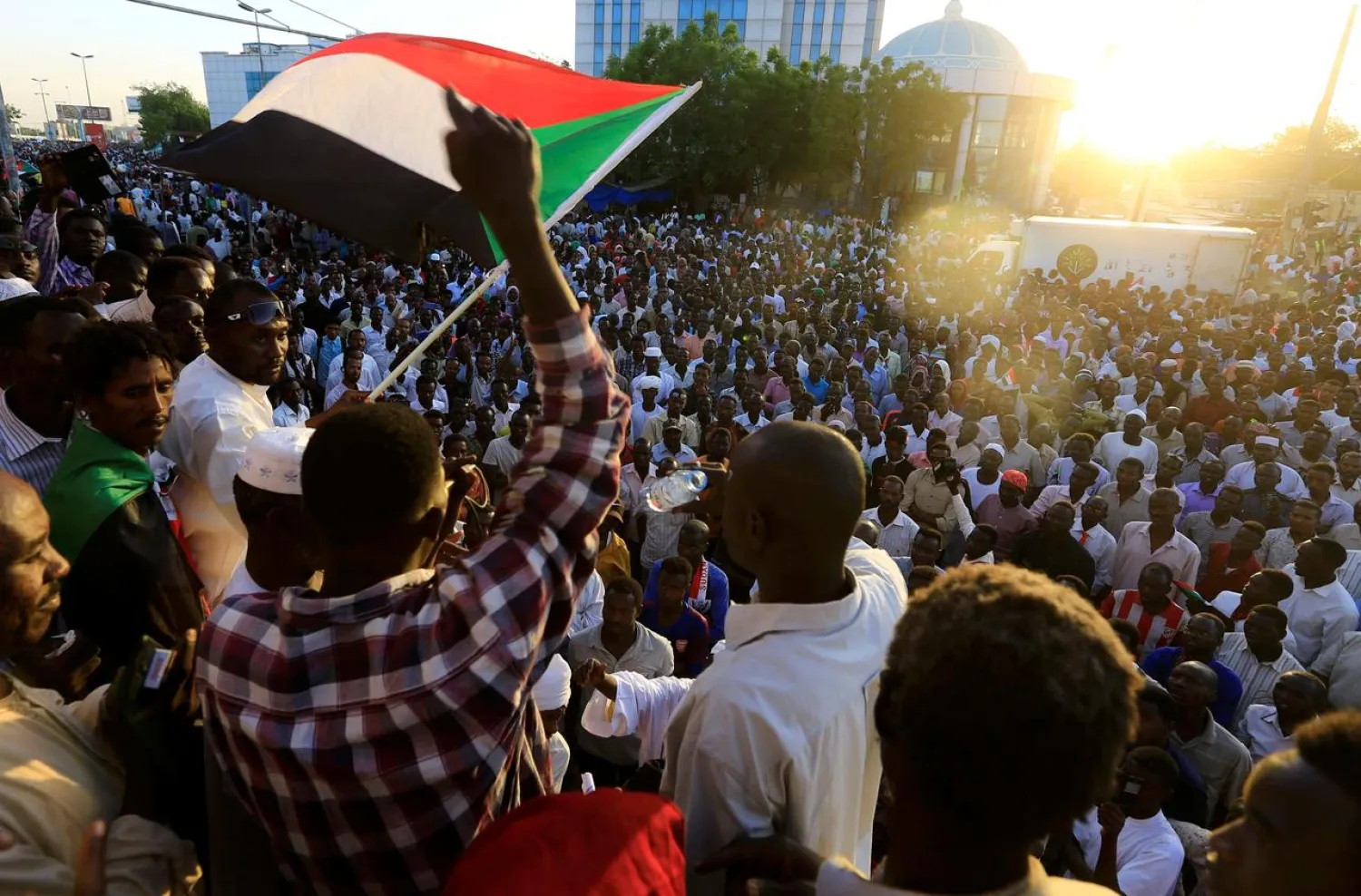Sudan’s opposition Declaration of Freedom and Change Forces (DFCF) and the ruling Transitional Military Council (TMC) agreed on Wednesday on transition period for the country that would last three years.
TMC member Lieutenant General Yasser al-Atta said DFCF will have two-thirds of the seats on a transitional legislative council and parties that are not part of the alliance will take the rest.
He added that a final deal on the transition would be reached within 24 hours.
Satea al-Hajj, a DFCF member, said: “The viewpoints are close and, God willing, we will reach an agreement soon” on the composition of a new sovereign council that would lead the country until elections.
The TMC had said the transition would last a maximum of two years, and the DFCF wanted it to last four years.
Protester Mohamed Abdullah told AFP that he was happy the way the negotiations had turned out so far.
"We will wait for tomorrow's talks, but my only question is 'Who will guarantee this agreement with the military council?'" he said as thousands of demonstrators gathered for another sit-in overnight.
The army generals had initially insisted on a two-year transition period, while the protest leaders wanted four years.
Key negotiations however remain on the composition of the sovereign council, which will replace the existing ruling body made up solely of generals. The generals say this should be military led while protest leaders want it to be majority civilian.
After the forming of the sovereign council, a new transitional civilian government will be formed to run the country's day-to-day affairs and would work towards having the first post-Bashir elections after the end of the transition period.
Atta said that during the transition period parliament will be composed of 300 members, of which 67 percent will be from the Alliance for Freedom and Change and the rest will be from other political groups.
The opposition alliance had blamed the military rulers on Tuesday for renewed street violence complicating efforts to negotiate a handover of power to civilians after last month’s overthrow of President Omar al-Bashir.
But Madani Abbas Madani, another DFCF figure, said on Wednesday that it was “abundantly clear that there are counter-revolutionary forces who are naturally displeased with any progress in negotiations”.
At least four people died and dozens were injured during protests on Monday.
Madani, speaking to a news conference alongside Atta past midnight, said the TMC had formed a committee to investigate the targeting of protesters. He also said a joint committee was set up with DFCF to thwart any attempt to break up a sit-in at the Defense Ministry.
Gunfire rang out in the capital into the night on Monday after paramilitary Rapid Support Forces (RSF) - whose head is deputy of the military council - had patrolled the streets using tear gas and guns to disrupt demonstrations.
The protesters, who want to keep pressure on the military for a swift handover, were back on Tuesday, blocking roads and bridges with bricks and rocks, images on social media showed.
Demonstrators have been camped at a sit-in outside the Defense Ministry since April 6. On Tuesday, the sit-in area and eastern Khartoum were blocked off from the capital’s center by barriers that the protesters have erected.
“The bullets that were fired yesterday were Rapid Support Forces bullets and we hold the military council responsible for what happened yesterday,” Khalid Omar Youssef, a senior figure in the DFCF, told a news conference on Tuesday.
“While they claimed that a third party was the one who did so, eyewitnesses confirmed that the party was in armed forces vehicles and in armed forces uniforms, so the military council must reveal this party.”
Monday’s fatalities were the first in protests for several weeks after months of demonstrations led to Bashir’s fall.
The victims included a military police officer and three demonstrators, state TV said.
The TMC, which took over after ousting the long-ruling Bashir last month, blamed the violence on saboteurs unhappy with the transition accord.
The United States backed the opposition alliance in pinning the blame for Monday’s chaos on the military for trying to remove roadblocks set up by protesters.
“The decision by security forces to escalate the use of force, including the unnecessary use of tear gas, led directly to the unacceptable violence later in the day that the TMC was unable to control,” said the US Embassy in Khartoum.
One hospital in Khartoum said it received more than 60 wounded on Monday as well as three dead bodies.









